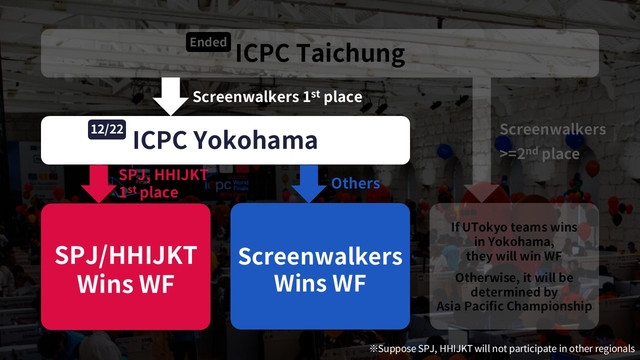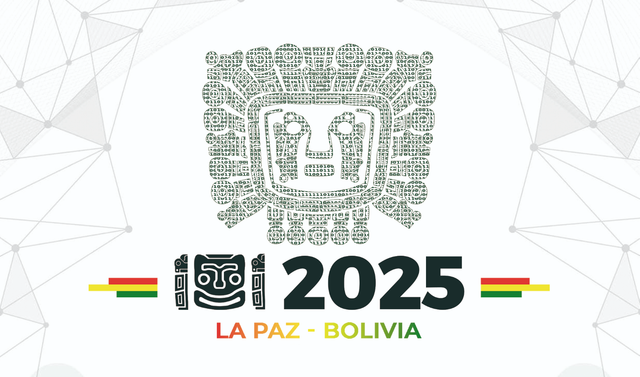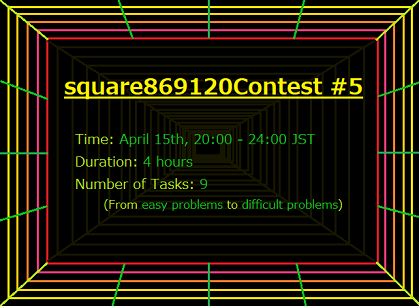Hello, CodeForces!
After the victory in ICPC 2024 Taichung Regional, I guess that many people think like as follows:
Team Screenwalkers will advance to the ICPC 2025 World Finals. Even if another team in The University of Tokyo gets the first place in another regional, Screenwalkers can participate in at least ICPC 2025 Asia Pacific Championship.
However, it is not true, because of the internal rules in the University of Tokyo. In The University of Tokyo, the special "Japan-prioritize Rules" exists — that is, if two different teams got the first place in regionals, those who won in Japan regional (which will be held in Yokohama city) will automatically win the tickets of ICPC 2025 World Finals.
Anyway, after the national first round in July, the following 3 teams from The University of Tokyo will advance to Yokohama regional. Therefore, the scenarios in the following figure can happen.
- Screenwalkers (E869120, square1001, Kodaman)
- SPJ
- HHIJKT
If you are curious about which UTokyo team will go to ICPC WF, you should notice that "Yokohama will decide everything". Note that Yokohama regional will held on December 21-22, 2024.
















